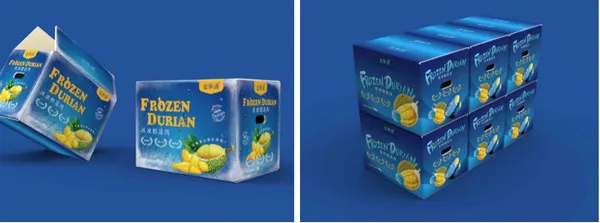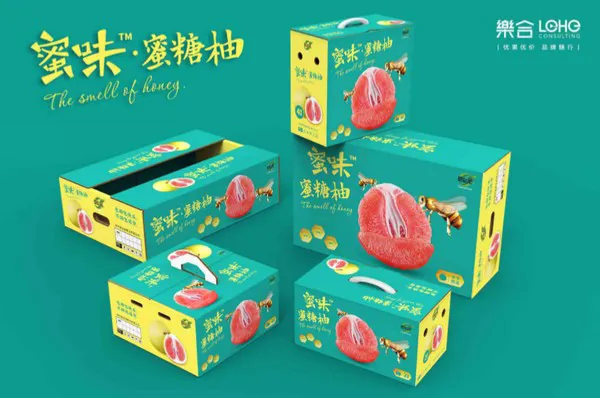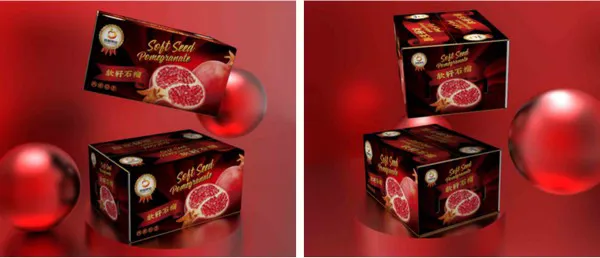The outbreak of Covid-19 last year created major obstacles for overseas transport, which significantly reduced Chinese import of overseas products. Under these circumstances, Chinese consumers shifted their attention to premium Chinese fruit products. They began to understand that premium Chinese fruit is just as good and tasty as import fruit. Furthermore, premium Chinese fruit is much cheaper than imported fruit. In addition, some Chinese consumers are worried about food safety during the pandemic and some incidents with imported fruit hurt their reputation in the Chinese market which significantly weakened their competitive position vis-à-vis premium Chinese fruit. Manager Zhou of Lehe Consultancy recently shared his insights into the current trends and market developments for premium Chinese fruit.

Lehe Consultancy is a company specialized in fruit brand strategy and brand development. The company provides designs for more efficient integration of production and marketing. According to manager Zhou: "The domestic fruit market rapidly developed in recent years. This market has attracted investment from outside the industry. Many Chinese companies are busy implementing standardized plantation, post-harvest preservation, and processing facility systems. The pandemic has only stimulated this development."

"As for the market, the spending power of consumers in second- and third-tier cities is quickly growing stronger. Import fruit is no longer the delicate, high-status product it once was and is becoming more and more common in markets across China. The market price of import fruit is not that high anymore, but the cost price is higher than for premium domestic fruit, which gives traders a larger profit margin. That is why some companies have adjusted their marketing strategy and placed more emphasis on premium domestic fruit instead of import fruit," explained manager Zhou.
According to manager Zhou Chinese consumers have always had some misconceptions about domestic fruit. First, they assume that import fruit is always much more expensive, but that is not always the case. Many premium Chinese fruits are quite expensive. Some are even more expensive than import fruits.
Second, Chinese consumers assume that Chinese fruit has more problems with food safety than import fruit. This is also not necessarily true. On the one hand, the Chinese government has implemented stricter regulations with regard to the management of fertilizers and other agricultural resources. This has greatly reduced the use of chemicals in Chinese agriculture, and greatly improved the food safety of Chinese fruit.
On the other hand, import fruit is not always as safe as Chinese consumers assume. Import fruit is not free of pesticides, it is just that their levels are within certain limits.

"Consumers all know that there is plenty of top-quality fruit in China. And high-end consumers are able to distinguish top-quality fruit. Take for example the large cherries from Dalian. People in Dalian rarely eat import cherries because they know the large cherries from Dalian taste better, even though the price of Dalian cherries is higher than the price of import cherries," said manager Zhou.
"In recent years the variety of premium Chinese fruit has greatly increased, such as the Jiang Mei Mei plums from Xinjiang and the Fei Cui Di Unicorn watermelons. These premium Chinese fruits occupy a significant share of the Chinese fruit market. However, there are very few premium Chinese fruit brands. This concept has not permeated the Chinese fruit industry yet. Many fruit traders sell premium Chinese fruit as loose goods or in cheap packaging. Some traders think that additional investment in packaging and other external aspects is not important. That is why there are so few strong premium Chinese fruit brands in the market."
Responding to this situation, manager Zhou advises traders to pay more attention to the creation of a strong brand. Only if traders can understand that strong brands bring their own profit, only then will they invest in the added value of premium Chinese fruit products. That is the only way that premium Chinese fruit will make its way into the international market.
"There is a polarization of product quality in the Chinese fruit market. The difference between brand products and loose products is growing wider. In the period between 2015-2020 premium Chinese fruit completed the first development stage. Premium Chinese fruit managed to attract the attention of high-end consumers. In the second five-year period I think we will see several strong Chinese fruit brands make an appearance on the international market. That will further stimulate brand formation in the domestic market. Of course, we also hope to see leading companies in the Chinese fruit industry make use of our brand consultancy services to further strengthen their position in the domestic and international fruit markets."
For more information:
Zhou Weiqi - Manager
Lehe Consultancy Co., Ltd.
Tel.: +86 18268344466
